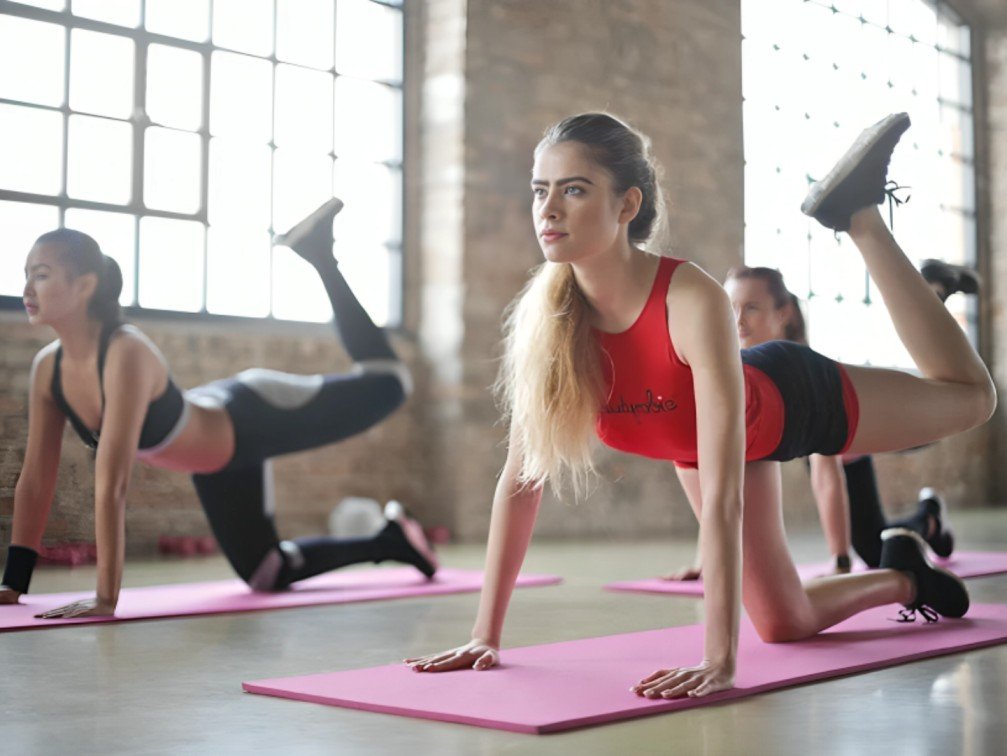We are so busy living that we forget how simple habits make a big difference in staying fit, especially when it comes to walking. There is no need for any equipment or a gym, nor a lot of time, yet it is one of the best methods there is for working out and feeling good. It is gentle on the body, easy to do, and anyone, at any age or fitness level, can do it.

Walking has amazing physical benefits. It strengthens the heart, improves blood flow, and reduces the risk of health problems such as high blood pressure and diabetes. More importantly, it burns calories the easy way without one becoming exhausted. For instance, 30 minutes of walking each day can help tone muscles, make bones stronger, and have healthy weight maintenance.
Besides that, walking is not only good for the body, but it can also be good for your mind. It helps eliminate stress, raise your mood, and maybe help clear your thoughts. A short walk in the morning or a very relaxed stroll in the evening, walking gives you the chance to just unwind and recharge. It’s a simple effective habit that can improve your health in many ways.
The Physical Benefits of Walking
Walking might seem like a simple, everyday activity, but it offers serious benefits for your physical health:
Better heart health
Regular walking helps strengthen your heart. It aids circulation, lowers blood pressure, and decreases the likelihood of heart disease. The heart can be kept in shape, and the risk of stroke or heart attack decreases by just 30 minutes of brisk walking every day.
Weight Control
One of the best things about walking is the fact that it burns calories easily without pushing one’s limit too much. A brisk 30-minute walk can burn as many as 100-200 calories depending on the one’s speed and physical build. With time, this will help with weight control or even weight loss if done in conjunction with a healthy diet.
Strong Muscles and Bones
Walking engages your muscles all over your body: from your legs to your core. The activity is also weight-bearing, which is fantastic for your bones. It improves the density of bones and can reduce the danger of osteoporosis. Also, it tones your legs and glutes without any rigorous exercises.
Better Joint Condition
Walking is quite gentle on the joints, unlike running or high-impact exercises. It helps improve flexibility and mobility around the joint, especially the hip, knee, and ankle joints. This becomes particularly beneficial with old age as it enhances mobility and minimizes stiffness.
How Just 30 Minutes a Day Can Make a Difference
We’ve all been told we need to exercise, but many of us think it requires hours at the gym. The truth is, you can get great results from just 30 minutes of walking each day. Here’s how it impacts you:
- Instant Boost in Mood and Energy: A 30-minute walk is enough to get your heart pumping and your blood flowing, which naturally boosts your mood and energy levels. You’ll feel more awake and clear-headed afterward.
- Fat Burning: Even when not running or lifting, walking helps to burn fat. A brisk walk can rev up your metabolism, thus making your body’s ability to burn calories even post your walk.
- Long-Term Health Benefits: Walking daily can reduce your chances of developing serious chronic conditions like Type 2 diabetes, heart ailments, and high blood pressure. In addition, it will improve your sleep as well as your digestive system two primary overlooked components of good health.
How to Make Walking Part of Your Routine
Incorporating walking into your daily routine doesn’t require drastic changes. You can start by simply adding more walking into your day. Here’s how:
Start with What You Can Do
If 30 minutes seems too much, start by walking for a little less duration. 10 to 15 minutes a day is an excellent starting point. Gradually increase the time of your walks as your stamina builds up.
Set a Time That Works for You
Consistency breeds success in making walking a habit. Identify a time that works well for your schedule it the morning, lunch break, or during dinner. Having a regular time to walk eases the habit-formation process.
Make it Social
Don’t make walking a lonely task. Walk with a friend, family member, or even your dog. Catching up will not be an issue, and you will be motivated to continue walking. In case you prefer spending time alone, you may listen to podcasts or music while walking and time will pass quickly.
Walk as Part of Your Daily Tasks
You do not need to go for a dedicated walk every time. Walk instead of driving whenever you can. Take the stairs instead of the elevator. Park further away from your destination to add extra steps to your day.
How to Make Your Walks More Productive
Want to make the most out of your walks? Here are a few simple tips to boost your fitness even more:
Walk Faster
Try to walk at a brisk pace that raises your heart rate. A brisk pace is fast enough that you can still talk, but you’ll be breathing fairly hard. This improves cardiovascular health and burns more calories.
Vary Your Route
Mix up your route, whether it is through the local park, along the beach, or through your neighborhood. Add hills if possible, such as climbing uphill or walking the stairs, to engage your muscles more and intensify the workout.
Maintain Posture
Assure that you keep your posture erect with shoulders relaxed, and crunching core as you walk. Your ultimate body strength will be dramatically maximized by keeping your muscles engaged.
Incorporate Bodyweight Exercises
To challenge your walk, incorporate bodyweight exercises into your walking routine. Some examples include the following: stop every 5 minutes to do 10 squats or lunges, or walk for 5 minutes and then do 1 minute of fast-paced steps followed by 1 minute at a slower pace.
Staying Motivated
Like any habit, staying consistent with walking can be a challenge. Here’s how to stay on track:
Busy Schedule
If you’re busy, you can always break your walk into shorter sessions throughout the day. A 10-minute walk in the morning, during lunch, and after dinner can easily add up to 30 minutes.
Staying Motivated
For example, you can track your progress with a fitness app or pedometer to monitor how many steps you take and how far you’ve walked. Setting small goals can keep you motivated. Sometimes, joining walking challenges or a group walking event will make it more fun and social.
In Short
Walking may seem simple, but its impact on your physical and mental well-being is profound. From strengthening your heart and maintaining a healthy weight to reducing stress, walking is a gentle yet powerful way to improve overall fitness. Just 30 minutes a day can lead to long-lasting benefits, boosting energy, and mood, and even helping prevent chronic conditions.
Incorporating walking into your daily routine does not have to be complicated. Start small, increase your time, and make it enjoyable for yourself, maybe by walking with a friend or listening to your favorite music while doing it. The more consistent you are, the greater the benefits that accrue to your body and mind.
So, put on your shoes, step outside, and start walking. It’s one of the easiest and most effective habits to improve your health, and the best part is—you’re already one step closer to a healthier you!
Stay tuned to inspire4ward for more updates.



